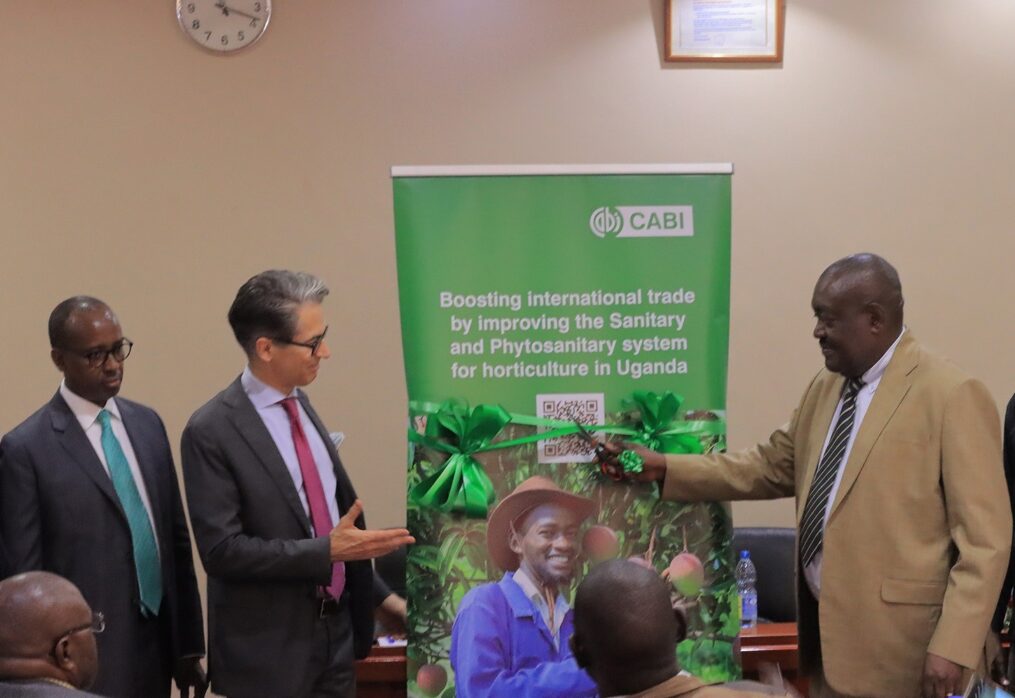EU invests Shs32b to enhance sanitary standards for Uganda’s horticultural exports
April 5, 2025 – The Centre for Agriculture and Biosciences International (CABI), the Committee Linking Entrepreneurship Agriculture Development (COLEAD), the HortiFresh Association of Uganda and the Ministry of Agriculture, Animal Industry, and Fisheries (MAAIF) have teamed up under a new 4-year project (2025-2029) funded by the European Union to strengthen the capacity of Ugandan authorities and private sector organizations in fresh fruit and vegetable (FFV) value chains in Uganda to comply with SPS measures for domestic and export markets. Entitled “Boosting international trade by improving the Sanitary and Phytosanitary system for horticulture in Uganda”, the project aims to increase trade, safeguard health and increasing income and employment opportunities. The project is targeting fresh fruits and vegetables, including capsicum, garden eggs (white), Hass avocado, mango and okra.
The project will build capacity among farmers and exporters to understand and comply with SPS requirements through training programs, awareness campaigns, setting up a logistic network that will include a cold chain transport system, an EU standard packaging house and one or more collection centres to be used by those not big enough to have their own process. The infrastructural support the project will provide to the government will ease the certification process at the fields and packhouses addressing export challenges.

The project addresses recurrent non-compliance with EU exports and SPS requirements for regulated pests as well as MRLs relating to plant protection products, production, Inspection and Quality Management Systems for import and export certification (with the packaging house and others) including SPS-related challenges, in an endeavour to enhance the potential to expand Uganda’s market share for fresh fruits and vegetables and attract additional investments needed to grow the subsector, building on existing initiatives in the country.
For Uganda, the export of horticultural produce to global markets is significant to its economy, food security and livelihoods. In 2023, 60% of exports, which included fresh fruit and vegetables, were to the EU, worth €58 million. However, despite the notable exports, Uganda has a limited share of the EU market. This is due to produce being intercepted and rejected because it does not meet the required SPS standards. Exports are being intercepted and rejected because of harmful organisms, excessive maximum residue limits (MRLs) that are not in line with the EU standards, and Codex and documentation errors. Given the challenges Uganda faces when exporting to the EU, there will be a core focus on EU plant health and food safety regulations. To regain market share and capitalize on the opportunity to increase revenue from fresh fruits and vegetables, Uganda must improve compliance with the Sanitary and Phytosanitary (SPS) measures.
For more details about the project, please check CABI’s website: https://www.cabi.org/projects/sps-in-uganda/.

